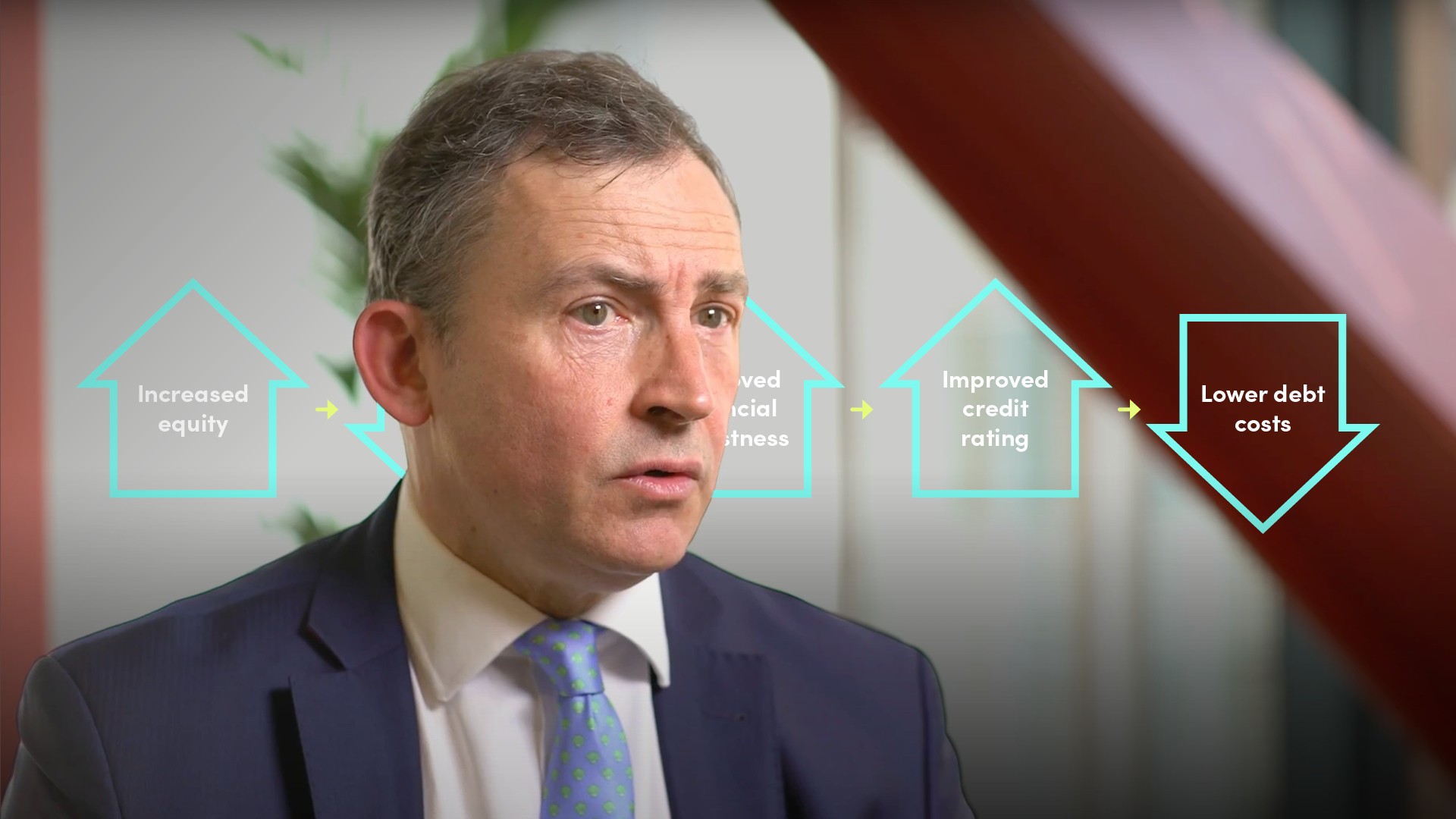
What are Corporate Hybrids?

Tim Skeet
35 years: Debt capital markets
In this video Tim covers hybrid securities and explains why issuers use them.
In this video Tim covers hybrid securities and explains why issuers use them.
Subscribe to watch
Access this and all of the content on our platform by signing up for a 7-day free trial.

What are Corporate Hybrids?
5 mins 20 secs
Key learning objectives:
Explain how corporate hybrids resemble both debt and equity
Explain the benefits issuers and investors gain from corporate hybrids
Describe the risks investors face when purchasing corporate hybrids
Overview:
Corporate hybrids are subordinated capital that shares features with both debt and equity. Corporate hybrids resemble debt in that it offers high yields paid regularly, and a call option. They resemble equity in that they have no maturity date, or at least a very long maturity date, and have no obligation to pay interest.
Subscribe to watch
Access this and all of the content on our platform by signing up for a 7-day free trial.
What are corporate hybrids?
Corporate hybrids are a form of deeply subordinated capital that shares elements of debt and equity.
Debt, in the sense that issuers pay regular, high interest on hybrid securities; and features such as buyback (or call) structures.
Equity in the sense that they either have no maturity date or have very long maturities. And, like with equity dividends, corporate issuers of hybrids have rights under certain conditions not to pay interest on the securities.
What benefits do issuers gain from issuing corporate hybrids?
- Credit Profile - As hybrids are classified by rating agencies as equity-content instruments, they improve a borrower’s credit profile. They do this by increasing the amount of equity a company has on the balance sheet for accounting purposes. More equity by definition reduces debt leverage. Lower debt leverage improves a company’s financial robustness and leads to higher credit ratings. Higher credit ratings, meanwhile, lead to lower overall debt costs
- Long-term Funding - As they are long-term instruments, corporate hybrids are popular among companies in the utilities sector, which typically have to fund long-term infrastructure or investment projects
- Acquisition Financing Tools - They are also popular as acquisition financing tools as they can protect an acquirer’s financial profile
What benefits do investors gain from purchasing corporate hybrids?
- High Yields - Hybrids offer yields comparable with those of high-yield bonds. But unlike high-yield bonds, hybrids are predominantly issued by financially stable companies with solid cash flow profiles and investment-grade senior ratings
- No Loss of Deferred Coupon Payments - Issuers of corporate hybrids have the option of not paying interest, or coupons, on hybrid instruments. If they defer coupons, however, unpaid interest is cumulative. In other words, investors don’t lose the right to the cash flow
What risks do investors face when purchasing corporate hybrids?
- Extension Risk - Hybrids typically come with five-year or 10-year call options. Call options give issuers the right to buy the instrument back from investors. A core condition of calling a hybrid is the company has to replace it with capital of similar or lower ranking. If they are not called, investors face what is known as extension risk. This can affect the value of the instrument
- Volatility Risk - Also because of their equity content, hybrids move in a manner that is more correlated to an issuer’s stock and the stock market than the debt market
Subscribe to watch
Access this and all of the content on our platform by signing up for a 7-day free trial.

Tim Skeet
There are no available Videos from "Tim Skeet"



























